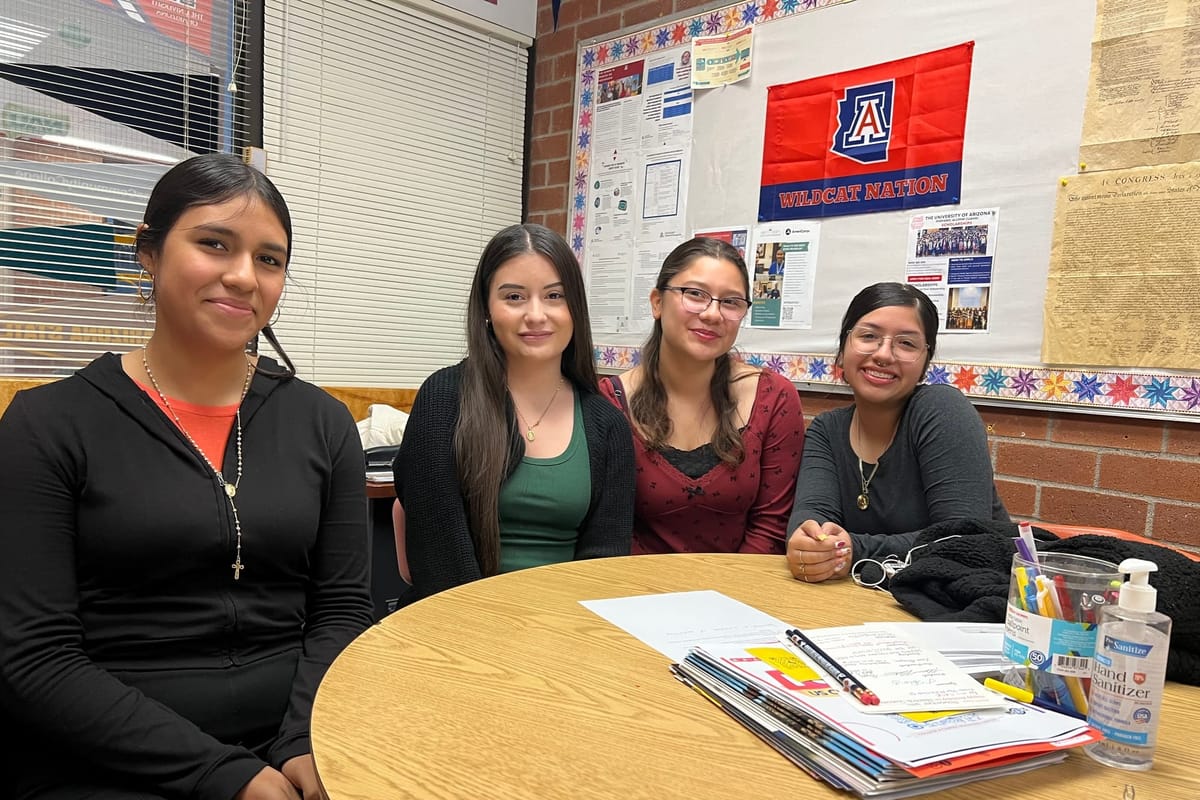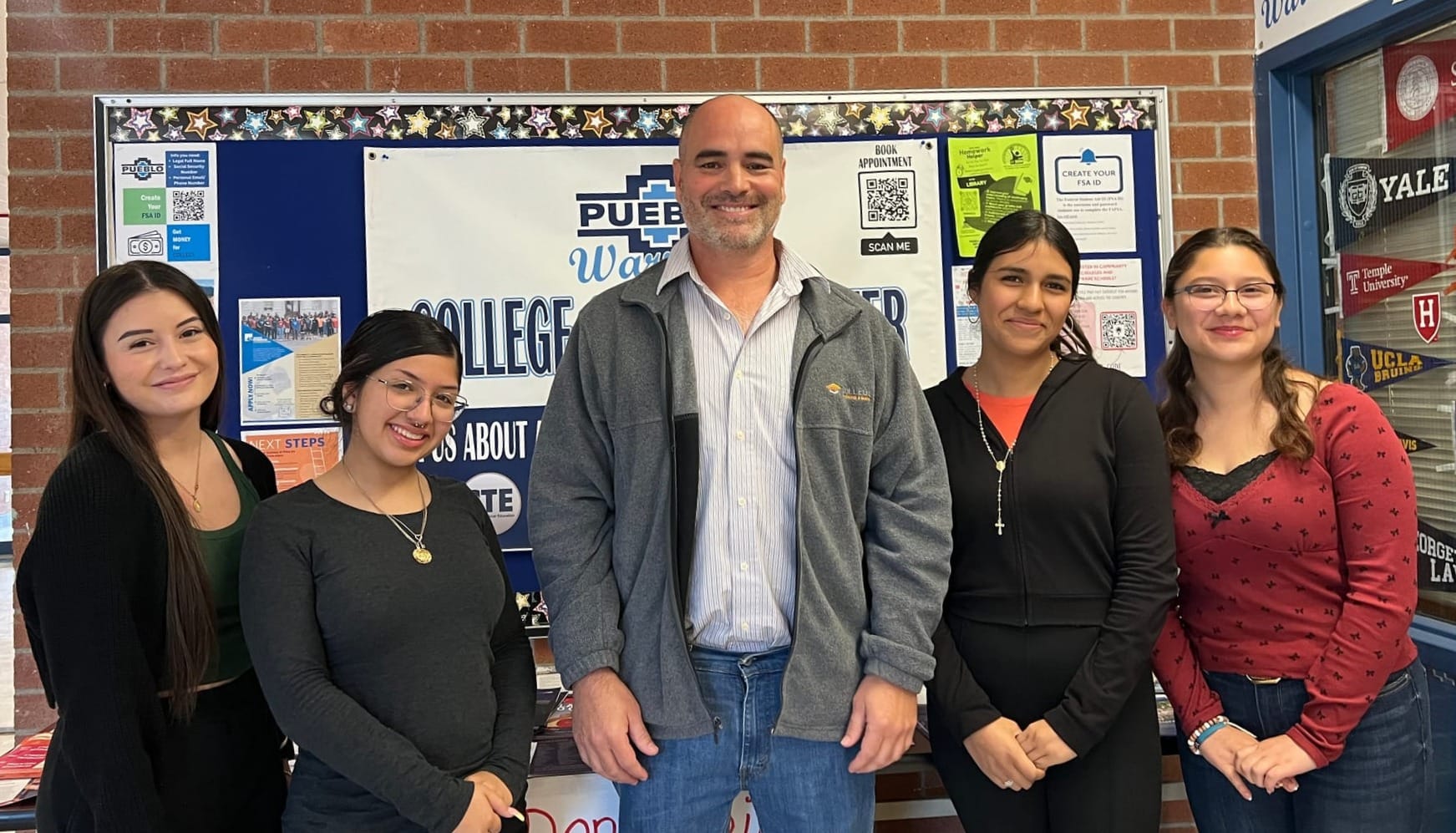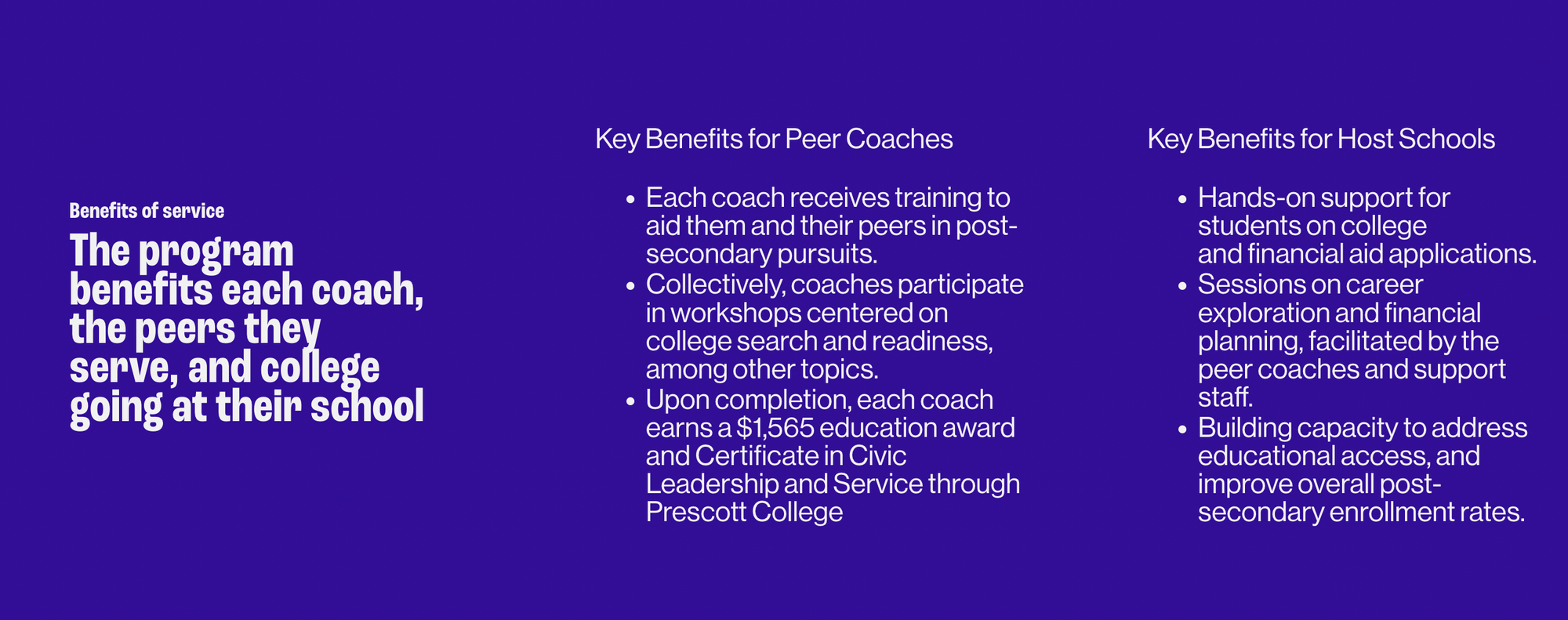Peer mentorship program helps pave the way to higher ed
The peer coaches program is designed to empower high schoolers with the tools and training they need to help support college and career readiness in their own schools.

Four Pueblo High School students are working together this school year to help make their classmates’ dream of postsecondary education a reality.
Pueblo is one of 19 schools in five Pima County districts that have benefitted from Pima College Access Network’s peer coach program, which pairs high school seniors with their classmates to help guide them through the college application, admission and financial aid process.
Over the past five years, more than 100 peer coaches have worked to help boost college enrollment in Pima County, thanks to a partnership between PCAN, Arizona Serve and AmeriCorps.
The program is designed to empower high schoolers with the tools and training they need to help support college and career readiness in their own schools.
Changes last year to the Free Application for Federal Student Aid resulted in a 24% nationwide drop in applications. Pima County saw a 20% reduction in applications, with the biggest decrease coming from TUSD schools.
That’s why this year, PCAN’s peer coaches are putting an emphasis on FAFSA literacy and helping students and their families overcome barriers associated with the application process.
While many schools in Pima County offer peer coaching, PCAN is the only one available to Pueblo High School students. The school’s four-person peer coaching team — known on social media as College and Career Warriors — is overseen by College and Career Readiness Coordinator Manuel Avila.
Avila immigrated to the United States from Hermosillo, Mexico in 2003, carrying with him a strong passion for social justice and equal rights.
“If you come to a country for any reason I think you should be able to succeed in that country or at least be given the opportunity,” he told Tucson Spotlight

He substitute-taught for Tucson Unified School District until he became certified to teach fulltime, then taught Spanish and social studies for 17 years. He embraced a multicultural curriculum, saying culture and identity are very important to him.
Avila took a break from teaching in 2019 to pursue a law degree at the University of Arizona, with aspirations of becoming an immigration attorney.
“I really wanted to be the vehicle to inform the community,” he said. “I believe information and transformation aer key. Anything you know, share it.”
But along the way, his plans changed and he decided he would rather bring information and transparency to Tucson’s underserved youth.
He returned to teaching after graduating from law school, saying that his knowledge of the law has helped him advocate for his students at Pueblo.
“I like talking to them about career pathways and options that they have, they really listen to me,” he said. “I like the impact you can have in a student’s life. Everything you tell them matters.”
Avila said Proposition 308, which was passed by Arizona voters in 2022 and allows for qualifying non-citizen Arizona high school graduates to receive in-state tuition at Arizona colleges, has been a game changer in many of his students’ lives.
The proposition benefits Deferred Action for Childhood Arrivals students and others that are undocumented who have fewer options to go to college in the states.

Brianna Campos Tapia, one of Pueblo’s peer coaches, said it’s important that students are able to receive information about Prop 308 and other educational options in a digestible way in both English and Spanish.
“I think it is important to have both options for students because our whole goal is to give resources to all students,” she said. “There are a lot of undocumented and DACA students that don’t think they can go to college, when in reality there are scholarships that will allow them to.”
For peer coach Esmeralda Almazan, the greatest personal gain is the students’ reaction when they see their futures open up.
“I love seeing the student’s faces when they come to the realization that they could do what they want to do, especially when a lot of them are uncertain,” she said.
Tapia and Almazan, along with their fellow peer coaches Marianna Martinez and Martha Saralegui, are all bilingual and work to explain scholarships and other important information in a way that both students and parents can understand.
It’s the coaches’ goal to check in with every high school senior and at least have an initial conversation about postsecondary options.
They collaborate with Pueblo’s student news service to get word out to all classrooms and use their social media as a key tool to engage with students.
As the program grows, the coaches hope to see more students use their resources and that their legacy continues on long after they graduate in May.
“I know a lot of students are embarrassed to come ask for help,” Martinez said, confident that this group can work to break the stigma. “So I hope in the next few years they stop being embarrassed about it.”
McKenna Manzo is a journalism major at the University of Arizona and Tucson Spotlight intern. Contact her at mckennamanzo@arizona.edu.
Tucson Spotlight is a community-based newsroom that provides paid opportunities for students and rising journalists in Southern Arizona. Please support our work with a paid subscription.



